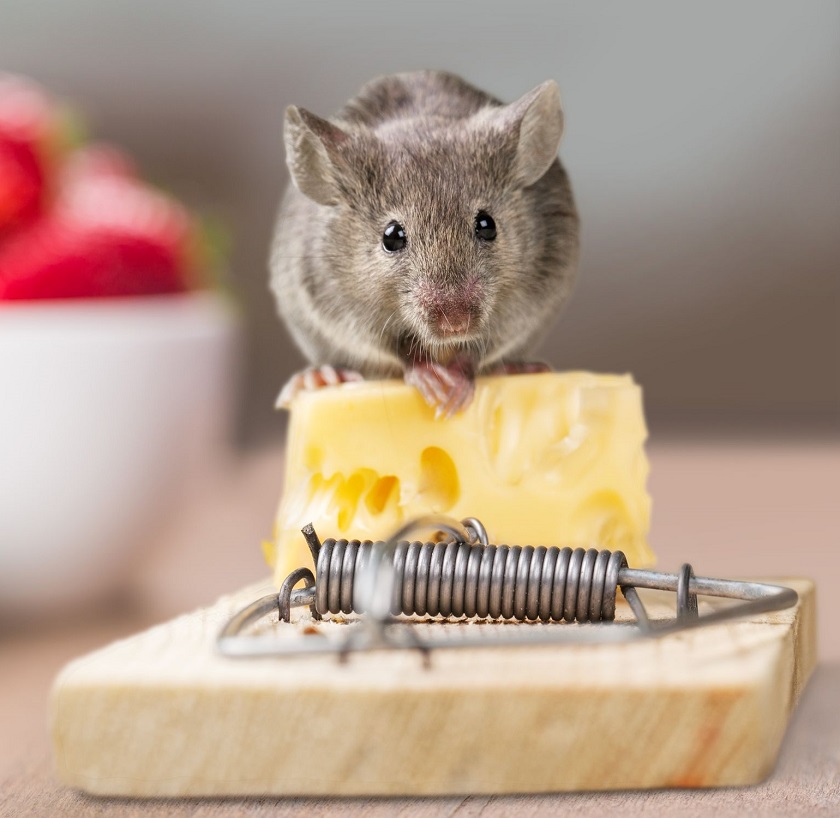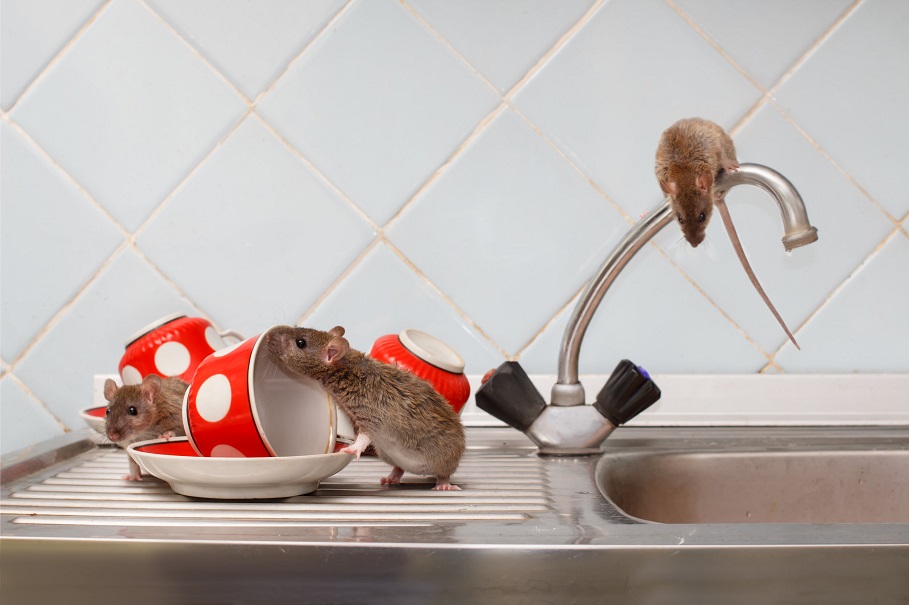Got out-of-control rodents at your place?
Call us for rodent control. We’re Auckland’s trusted experts.
When it comes to rodent control, we’re all over it!

Rodent control in Auckland
Rats and mice can transmit diseases and destroy property. Any home or business can face a rodent problem. At Bug King, we understand that finding mice or rats in your home or business can be very distressing.
Call Bug King on 0800 546454 to find out about Auckland’s safe, discreet rodent control services that work every time.
A bit about rodents
These species of rodents are the most frequent offenders.
- Norway or brown rat (Rattus norvegicus)
- Ship or common rat (Rattus rattus)
- Kiore or Polynesian rat (Rattus exculans)
- House mouse (Mus musculus)
Brown rats
An average adult Norway or brown rat weighs about 500gms. Its long, hairless tail is shorter than the head and body. Norway rats will nest under buildings and concrete slabs, along riverbanks, and in rubbish and compost piles. Often, they will burrow under the foundations of buildings and create elaborate systems with an entrance and several escape holes.
Although Norway rats can climb, they tend more trouble closer to the ground, while common rats prefer rafters and roofs.
Ship rats
Sometimes called black, common or roof rats, these pests are generally not as large as brown rats, and they have a pointed muzzle, larger ears, and a tail that is longer than the body. They can be found in trees and vine-covered fences, which is how they often get into buildings.
Kiore
Kiore were the first rats to arrive in New Zealand and are now mainly found in the lower South Island. They have brown fur and white-tipped grey fur on their belly. Their thin tails are about the same length as their body and they are smaller than other rats in New Zealand, usually weighing between 60g – 80g.
Mice
The common house mouse is a pest that damages wiring, pipework and buildings and will transmit disease. Mice almost continually dribble urine. House mice are active all year round, so you could find them invading your home or business at any time.
Mice are inquisitive and usually do not exhibit the neophobia (fear of new things) that their rat ‘cousins’ do. They are about 70 – 95mm long, with a tail around the same length. Their relatively small feet and head and their large eyes and ears distinguish them from a young brown rat. They are masters at gaining access to buildings and will chew, gnaw, climb, or swim to reach where they have decided they are going.
Rodent families
Rodents are usually nocturnal, but as population densities increase, they may be seen during daylight hours.
Rat populations can expand rapidly. If unchecked, one pair can produce 6 to 12 young in 21 days. Sexual maturity is reached at 3 months. Therefore, assuming adequate food, water, and shelter, a single pair of rats may multiply into more than 640 rats in 1 year.
House mice are sexually mature at 6 to 10 weeks. A litter of five to six young are born about 20 days after mating. These young are weaned in 3 weeks, and a female may have five to ten litters per year. So, in one year, a single pair of mice may multiply into several thousand.
That is one seriously large number of rodents.

Info on our Auckland rodent control services
Pricing
253.00 includes a rat bait station or 5 x mouse bait stations (if required).
If the infestation is severe, we may recommend a 7-day follow-up visit.
$215.00 7-day follow-up visit.
We guarantee to exterminate all rodent nests on your property.
What we do
The most successful solution for how to get rid of mice is a baiting strategy. If set up correctly, this overcomes all the natural rodent behaviours that make other mouse control methods less successful.
Our technician will complete a thorough inspection of your home, looking for potential access points, evidence of rodent activity and food sources that attract rats and mice.
Baits are secured in areas where there is evidence of activity. The baits are secured using wire and/or in lockable bait stations if accessible by children or pets. This also allows us to monitor the level of mouse activity if a return visit is required.
Our technicians will also offer advice on eliminating food sources that attract mice, as well as what the likely access points are into your home and how to seal them.
Need help with how to get rid of mice? Give the team a call for advice or to make a booking. Phone Bug King on 0800 546454.
Safety
We make the security of our bait placements a high priority. If children or pets have potential access the bait, we will secure it in a high-quality lockable bait station. If bait is placed in inaccessible areas, we will wire it in place to ensure that rodents can’t drag it to new locations.
All bait we use contains Bitrex™. This makes the bait very bitter to the taste, discouraging eating.
If bait is accidentally consumed, an injection of Vitamin K1 will overcome any poisoning effects. The bait is not fast acting, you will have days rather than hours to react to any bait accidentally consumed.
What happens if my cat/dog eats a mouse that’s been poisoned?
Nothing. The risk of secondary poisoning is practically non-existent. The potency of the bait has been lost by the time poisoning effect on the mouse is noticeable.
“These guys were pleasant, professional and friendly. They did a great job and I would recommend them to friends and family and anyone else with a rodent problem with no hesitation.”
James
Testimonials
It’s always good to take someone else’s word for it! Read what our customers have said about us following a successful pest removal. We can also arrange for you to speak directly to someone who has used our services, as we appreciate that you need to be absolutely certain about how our pest control works before you ask us into your home.
